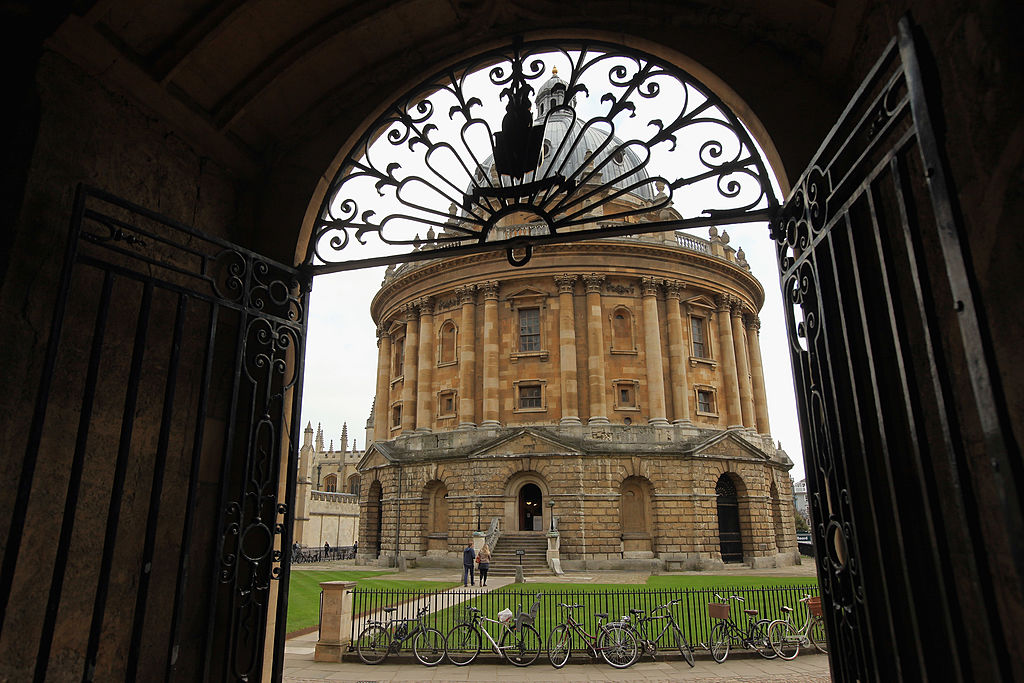New Oxford study suggests millions of people may have already built up coronavirus immunity


A free daily email with the biggest news stories of the day – and the best features from TheWeek.com
You are now subscribed
Your newsletter sign-up was successful
A model predicting the progression of the novel coronavirus pandemic produced by researchers at Imperial College London set off alarms across the world and was a major factor in several governments' decisions to lock things down. But a new model from Oxford University is challenging its accuracy, the Financial Times reports.
The Oxford research suggests the pandemic is in a later stage than previously thought and estimates the virus has already infected at least millions of people worldwide. In the United Kingdom, which the study focuses on, half the population would have already been infected. If accurate, that would mean transmission began around mid-January and the vast majority of cases presented mild or no symptoms.
The head of the study, professor Sunetra Gupta, an Oxford theoretical epidemiologist, said she still supports the U.K.'s decision to shut down the country to suppress the virus even if her research winds up being proven correct. But she also doesn't appear to be a big fan of the work done by the Imperial College team. "I am surprised that there has been such unqualified acceptance of the Imperial model," she said.
The Week
Escape your echo chamber. Get the facts behind the news, plus analysis from multiple perspectives.

Sign up for The Week's Free Newsletters
From our morning news briefing to a weekly Good News Newsletter, get the best of The Week delivered directly to your inbox.
From our morning news briefing to a weekly Good News Newsletter, get the best of The Week delivered directly to your inbox.
If her work is accurate, that would likely mean a large swath of the population has built up resistance to the virus. Theoretically, then, social restrictions could ease sooner than anticipated. What needs to be done now, Gupta said, is a whole lot of antibody testing to figure out who may have contracted the virus. Her research team is working with groups from the University of Cambridge and the University of Kent to start those tests for the general population as quickly as possible. Read more at the Financial Times.
A free daily email with the biggest news stories of the day – and the best features from TheWeek.com
Tim is a staff writer at The Week and has contributed to Bedford and Bowery and The New York Transatlantic. He is a graduate of Occidental College and NYU's journalism school. Tim enjoys writing about baseball, Europe, and extinct megafauna. He lives in New York City.
-
 Political cartoons for February 3
Political cartoons for February 3Cartoons Tuesday’s political cartoons include empty seats, the worst of the worst of bunnies, and more
-
 Trump’s Kennedy Center closure plan draws ire
Trump’s Kennedy Center closure plan draws ireSpeed Read Trump said he will close the center for two years for ‘renovations’
-
 Trump's ‘weaponization czar’ demoted at DOJ
Trump's ‘weaponization czar’ demoted at DOJSpeed Read Ed Martin lost his title as assistant attorney general
-
 A Nipah virus outbreak in India has brought back Covid-era surveillance
A Nipah virus outbreak in India has brought back Covid-era surveillanceUnder the radar The disease can spread through animals and humans
-
 Trump HHS slashes advised child vaccinations
Trump HHS slashes advised child vaccinationsSpeed Read In a widely condemned move, the CDC will now recommend that children get vaccinated against 11 communicable diseases, not 17
-
 Covid-19 mRNA vaccines could help fight cancer
Covid-19 mRNA vaccines could help fight cancerUnder the radar They boost the immune system
-
 FDA OKs generic abortion pill, riling the right
FDA OKs generic abortion pill, riling the rightSpeed Read The drug in question is a generic version of mifepristone, used to carry out two-thirds of US abortions
-
 The new Stratus Covid strain – and why it’s on the rise
The new Stratus Covid strain – and why it’s on the riseThe Explainer ‘No evidence’ new variant is more dangerous or that vaccines won’t work against it, say UK health experts
-
 RFK Jr. vaccine panel advises restricting MMRV shot
RFK Jr. vaccine panel advises restricting MMRV shotSpeed Read The committee voted to restrict access to a childhood vaccine against chickenpox
-
 Texas declares end to measles outbreak
Texas declares end to measles outbreakSpeed Read The vaccine-preventable disease is still spreading in neighboring states, Mexico and Canada
-
 RFK Jr. shuts down mRNA vaccine funding at agency
RFK Jr. shuts down mRNA vaccine funding at agencySpeed Read The decision canceled or modified 22 projects, primarily for work on vaccines and therapeutics for respiratory viruses
